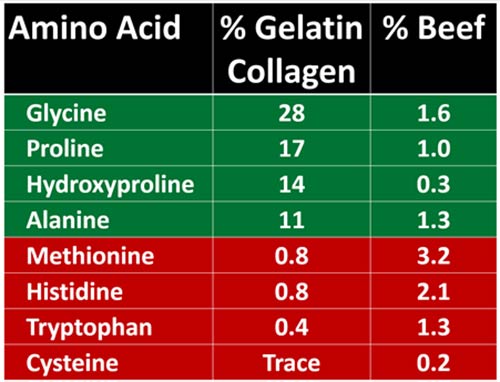
Healthcare is within the midst of an AI revolution, and that’s factor. At a time of rising hospital prices, labor shortages, and working margins effectively under historic ranges, income cycle executives want to judge their denials administration technique by the lens of synthetic intelligence.
The regular enhance in insurance coverage claims denials has change into one of the important monetary tendencies affecting hospital income cycle efficiency. Current analyses from Kodiak Options, previously Crowe, revealed preliminary claims denials have jumped 11.9 % year-over-year. Drawing on information from over 1,800 hospitals, the analysis highlights the mounting challenges, particularly in aged accounts receivable, notably for sufferers coated by Medicare and business plans.
A separate report by the American Hospital Affiliation (AHA) leveraging monetary information from greater than 1,300 hospitals and well being programs, discovered a 56 % hike in Medicare Benefit denials between January 2022 and June 2023, reiterating the mounting significance of denials administration to the general monetary viability of a supplier.
But one other report reveals that just about half of healthcare suppliers within the US have witnessed a surge in declare denials, with errors in affected person entry and registration rising as the first wrongdoer. As soon as extra, these outcomes spotlight the persistent hurdles suppliers encounter in securing reimbursement.
For hospitals nonetheless grappling with the monetary aftermath of Covid-19, managing denied claims couldn’t be extra dire. Ongoing labor shortages and provide chain disruptions persistently impression hospital margins, emphasizing the pressing want for a extra proactive strategy. To realize this, adopting AI methodologies just like these employed by main insurers in claims processing turns into a prudent step ahead.
AI’s affect on claims denials
AI holds monumental potential to revolutionize the denials panorama, and its impression is already evident. Via the usage of AI, healthcare suppliers can streamline claims processing, improve coding accuracy, and extract important data from medical information and payer contracts to sort out the basis causes of denials.
Whereas the experience of seasoned income cycle professionals stays essential for denials decision and prevention, denials will nonetheless happen with greater frequency and complexity primarily based on tendencies from latest years. The combination of AI and automatic workflows empowers these professionals to function with most effectivity and effectiveness. This empowerment extends to not solely stopping denials within the first place but in addition efficiently overturning them. Examples of the broad-spectrum use of AI within the income cycle Embrace the next.
- Choice fashions for prioritization: Within the realm of AI, choice fashions are particularly designed to categorize or select particular objects or entities primarily based on predefined standards. These fashions, a subset of machine studying, automate the prioritization of accounts, in the end serving to to spice up income yields.
- Workflow acceleration: AI may streamline workflows and expedite response instances by automating the extraction of vital data from varied sources, resembling claims, medical information, contracts, and tips. This extracted data is then utilized to speed up varied duties. For instance, AI can generate draft enchantment letters for a income cycle skilled to subsequently evaluate and edit, decreasing handbook labor, minimizing errors, and enhancing general workflow effectivity leading to improved income outcomes.
- Improved value accuracy: AI proves invaluable to Income Cycle Administration (RCM) groups by harnessing the worth hidden in unstructured information from sources like medical information and managed care contracts. It identifies discrepancies in reimbursement charges and ensures adherence to contractual phrases. This proactive strategy helps forestall denials and underpayments whereas equipping healthcare suppliers with important information to ensure correct reimbursement per negotiated agreements.
- Predictive development evaluation: With denial charges on the rise and evolving coding insurance policies, the method of submitting claims turns into more and more complicated, presenting challenges for under-resourced supplier organizations. AI steps in by figuring out and forecasting tendencies associated to denials and funds. This foresight permits RCM groups to make vital operational changes to keep away from denials. Moreover, AI’s predictive capabilities permit RCM groups to allocate their restricted assets extra successfully by figuring out which denials are roughly more likely to be overturned after they do happen.
Deploying AI for denials administration: Key issues
When healthcare organizations incorporate AI and automation into RCM processes, they encounter a spread of technical, information, expertise, and operational issues.
Creating efficient AI fashions is a difficult process, necessitating a considerable quantity of high-quality information to coach and mature fashions. It additionally requires information scientists with specialised expertise who can harness information successfully whereas figuring out significant use circumstances for machine studying. Furthermore, it calls for strong underlying platforms and engineering capabilities for environment friendly mannequin deployment and a deep understanding of evolving requirements and rules to make sure moral and compliant utilization. Collaborating with established RCM innovators within the trade can expedite a healthcare system’s path to stronger monetary well being.
Massive Language Fashions (LLMs) or foundational fashions characterize a groundbreaking innovation, providing immense potential and substantial uncertainties. Regulatory frameworks are catching up with this know-how, however its speedy evolution introduces ongoing uncertainties. Collaborating with strategic companions expert on this turns into an important technique. Notably, main gamers like Google, Microsoft, AWS, and different cloud suppliers are growing healthcare-specific LLM platforms, contributing to threat mitigation on this evolving panorama.
Moreover, participating with trade teams resembling state hospital associations and collaborating with a number of healthcare organizations and know-how firms for pilot tasks are advisable approaches. Supplier organizations ought to start small, leveraging AI to handle their most difficult points, resembling affected person collections.
Interoperability is paramount, requiring a strong information infrastructure able to effectively routing claim-level, scientific, contract, and operational information to AI fashions and integrating the outcomes into operational workflows. Implementing these fashions additionally entails change administration, coaching, and a product-driven mindset to make sure they generate tangible enterprise worth.
Because the healthcare trade grapples with varied challenges, from workforce shortages to complicated coding intricacies, embracing AI can empower income cycle professionals to check a future with lowered denials, optimized income, and fortified monetary well being. The urgency is evident, as delays can lead to potential income loss. The trail forward guarantees streamlined processes, improved coding accuracy, and proactive denials prevention, marking a transformative shift the place AI turns into an indispensable asset in strengthening the monetary income cycle construction for healthcare suppliers.
The utilization of AI by payers has already contributed to an increase in denial volumes, emphasizing the urgency for healthcare suppliers to promptly harness AI as a elementary asset to boost their income cycle.
Photograph: Filograph, Getty Pictures


